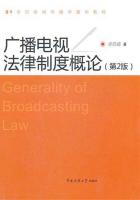FOREIGN COLONISTS ON THE STEPPE
The Steppe--Variety of Races, Languages, and Religions--The German Colonists--In What Sense the Russians are an Imitative People--The Mennonites--Climate and Arboriculture--Bulgarian Colonists--Tartar-
Speaking Greeks--Jewish Agriculturists--Russification--A Circassian Scotchman--Numerical Strength of the Foreign Element.
In European Russia the struggle between agriculture and nomadic barbarism is now a thing of the past, and the fertile Steppe, which was for centuries a battle-ground of the Aryan and Turanian races, has been incorporated into the dominions of the Tsar. The nomadic tribes have been partly driven out and partly pacified and parked in "reserves," and the territory which they so long and so stubbornly defended is now studded with peaceful villages and tilled by laborious agriculturists.
In traversing this region the ordinary tourist will find little to interest him. He will see nothing which he can possibly dignify by the name of scenery, and he may journey on for many days without having any occasion to make an entry in his note-book. If he should happen, however, to be an ethnologist and linguist, he may find occupation, for he will here meet with fragments of many different races and a variety of foreign tongues.
This ethnological variety is the result of a policy inaugurated by Catherine II. So long as the southern frontier was pushed forward slowly, the acquired territory was regularly filled up by Russian peasants from the central provinces who were anxious to obtain more land and more liberty than they enjoyed in their native villages;
but during "the glorious age of Catherine" the frontier was pushed forward so rapidly that the old method of spontaneous emigration no longer sufficed to people the annexed territory. The Empress had recourse, therefore, to organised emigration from foreign countries. Her diplomatic representatives in Western Europe tried to induce artisans and peasants to emigrate to Russia, and special agents were sent to various countries to supplement the efforts of the diplomatists. Thousands accepted the invitation, and were for the most part settled on the land which had been recently the pasture-ground of the nomadic hordes.
This policy was adopted by succeeding sovereigns, and the consequence of it has been that Southern Russia now contains a variety of races such as is to be found, perhaps, nowhere else in Europe. The official statistics of New Russia alone--that is to say, the provinces of Ekaterinoslaf, Tauride, Kherson, and Bessarabia--enumerate the following nationalities: Great Russians, Little Russians, Poles, Servians, Montenegrins, Bulgarians, Moldavians, Germans, English, Swedes, Swiss, French, Italians, Greeks, Armenians, Tartars, Mordwa, Jews, and Gypsies. The religions are almost equally numerous. The statistics speak of Greek Orthodox, Roman Catholics, Gregorians, Lutherans, Calvinists, Anglicans, Mennonites, Separatists, Pietists, Karaim Jews, Talmudists, Mahometans, and numerous Russian sects, such as the Molokanye and the Skoptsi or Eunuchs. America herself could scarcely show a more motley list in her statistics of population.
It is but fair to state that the above list, though literally correct, does not give a true idea of the actual population. The great body of the inhabitants are Russian and Orthodox, whilst several of the nationalities named are represented by a small number of souls--some of them, such as the French, being found exclusively in the towns. Still, the variety even in the rural population is very great. Once, in the space of three days, and using only the most primitive means of conveyance, I visited colonies of Greeks, Germans, Servians, Bulgarians, Montenegrins, and Jews.
Of all the foreign colonists the Germans are by far the most numerous. The object of the Government in inviting them to settle in the country was that they should till the unoccupied land and thereby increase the national wealth, and that they should at the same time exercise a civilising influence on the Russian peasantry in their vicinity. In this latter respect they have totally failed to fulfil their mission. A Russian village, situated in the midst of German colonies, shows generally, so far as I could observe, no signs of German influence. Each nationality lives more majorum, and holds as little communication as possible with the other. The muzhik observes carefully--for he is very curious--the mode of life of his more advanced neighbours, but he never thinks of adopting it. He looks upon Germans almost as beings of a different world--
as a wonderfully cunning and ingenious people, who have been endowed by Providence with peculiar qualities not possessed by ordinary Orthodox humanity. To him it seems in the nature of things that Germans should live in large, clean, well-built houses, in the same way as it is in the nature of things that birds should build nests; and as it has probably never occurred to a human being to build a nest for himself and his family, so it never occurs to a Russian peasant to build a house on the German model. Germans are Germans, and Russians are Russians--and there is nothing more to be said on the subject.
This stubbornly conservative spirit of the peasantry who live in the neighbourhood of Germans seems to give the lie direct to the oft-repeated and universally believed assertion that Russians are an imitative people strongly disposed to adopt the manners and customs of any foreigners with whom they may come in contact. The Russian, it is said, changes his nationality as easily as he changes his coat, and derives great satisfaction from wearing some nationality that does not belong to him; but here we have an important fact which appears to prove the contrary.















